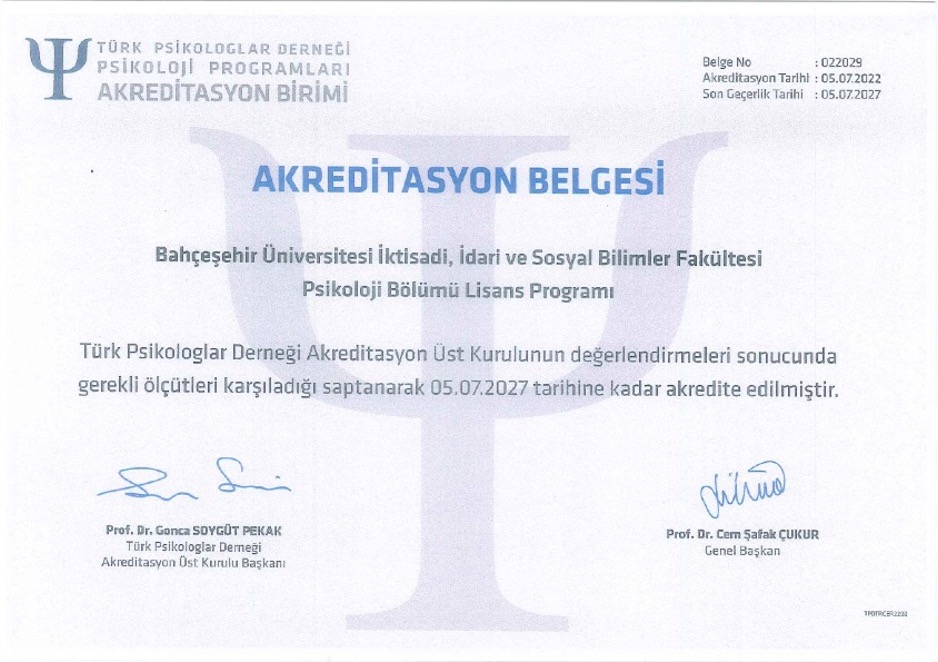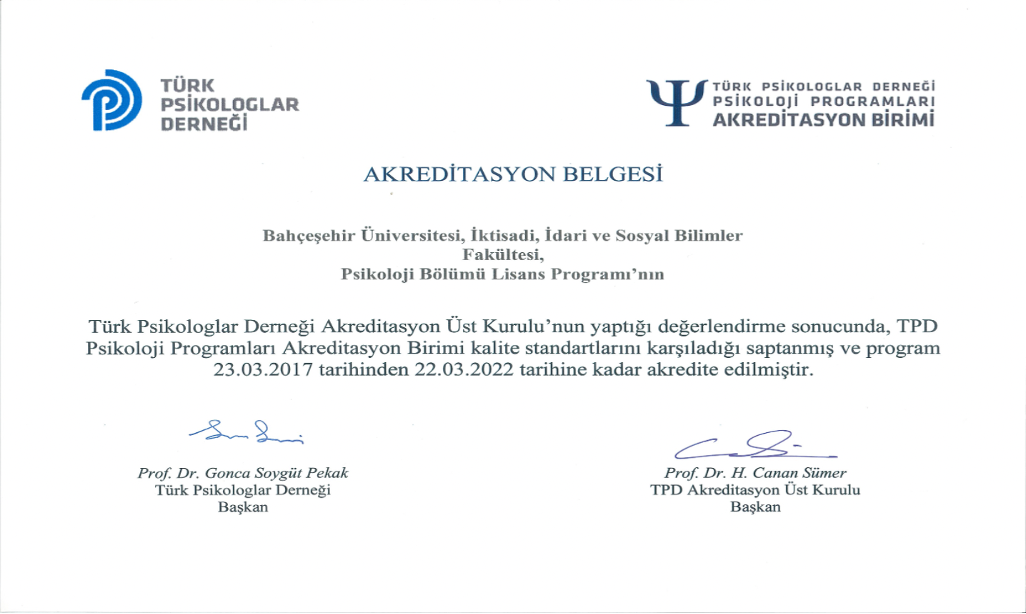QUALITY AND ACCREDITATION TEAM
1. Develop an interest in the human mind and behavior, evaluate theories using empirical findings, understand that psychology is an evidence-based science by acquiring critical thinking skills.
2. Gain a biopsychosocial perspective on human behavior. That is, understand the biological, psychological and social variables of behavior.
3. Learn the basic concepts in psychology and the theoretical and practical approaches used to study them (e.g. knowing basic observation and interview techniques).
4. Acquire the methods and skills of accessing and writing information using English, the dominant language in the psychology literature, recognize and apply scientific research and data evaluation techniques (e.g. correlational, experimental, cross-sectional and longitudinal studies, case studies).
5. Adopts an attitude against discrimination and prejudice; shows ethical sensitivity while working in research and practice areas.
6. Recognize the main subfields of psychology (experimental, developmental, clinical, cognitive, social and industrial/organizational psychology) and their related fields of study and specialization.
7. Acquires the skills necessary for analyzing, interpreting and presenting the findings as well as problem posing, hypothesizing and data collection, which are the basic elements of scientific work.
8. Gains the basic knowledge and skills necessary for psychological measurement and evaluation.
9. Acquires basic knowledge of other disciplines (medicine, genetics, biology, economics, sociology, political science, communication, philosophy, anthropology, literature, law, art, etc.) that will contribute to psychology and can use this knowledge in understanding and interpreting psychological processes.
10. Develops sensitivity towards social problems; takes responsibility in activities that benefit the field of psychology and society.
11. Have problem solving skills and develop the necessary analytical approaches for this.
12. Can express their thoughts by critically addressing any subject in business and academic life.
The Department of Psychology is accredited by the Turkish Psychological Association until 2027.
Our work for YÖKAK accreditation continues.

